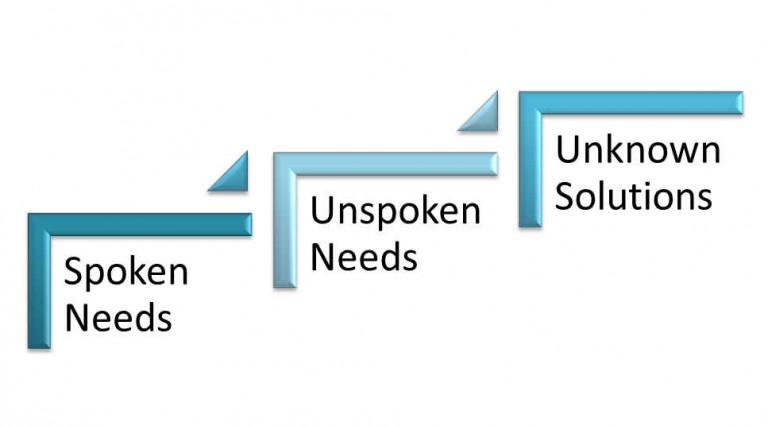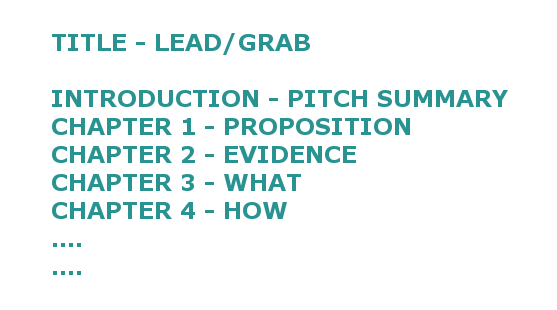4MAT your website structure for better results
Getting visitors to your website is one thing, keeping them on your website once they’ve arrived is another. In an increasingly noisy online world, the classic KISS (Keep It Simple, Stupid) applies more than ever. 4MAT can help you structure a simple website.
WordPress and other content management systems make it all to easy to build complex websites. Before you know it, you have a website with 20 or more menus and submenus. Not only is that a lot of maintenance for you, it will confuse your customers and actually turn them off.
If you want a simple structure for designing a website that people WANT to visit, take a lesson from the basics of human learning and use 4MAT.
4MAT has been used for teaching and learning for decades and has wider applications in the online space. It can be really helpful when you’re staring down a blank screen trying to write a blog post or when you need to speak about your business.
4MAT as framework for website structure
4MAT is also a great tool to use in designing a customer friendly website structure. In its simplest form, it proposes that there are four basic learning preferences that lead to four fundamental questions that your visitors want answered. The learning preferences are:
- Imaginative learners need to connect what they’re hearing with prior knowledge and experience.
- Analytic learners want to know the underlying knowledge base and the expertise behind it.
- Pragmatic learners want to just jump in and use the knowledge.
- Dynamic learners want to “do it” – and then explore what else they can do with they can do.
You maximise your chances to keep visitors on your website when you answer the following four questions in the following sequence. Add a blog and a contact page and you may have all you need for the core structure of your website:
- Why? Your imaginative visitors want to connect what they’re seeing and reading with their existing knowledge and experience. Communicate why you understand their needs and why your business in particular can satisfy them.
- What? Your analytic visitors want to know the facts and the expertise behind them. Communicate the facts about your business and your expertise.
- How? Pragmatic visitors want to jump in – to get hands on and experience what you’re offering. Communicate how your process works and what they will experience.
- What Else? Dynamic visitors want to try what you offer and then go beyond it to explore different ways they can utilise the product or service you offer. Here’s where you talk about the unusual versions of what you do.
An example using a bookkeeping website
Let’s say I’m working with a bookkeeper specialising in small business and work through the Why, What, How and What Else of her website.
Why have a bookkeeper?
 Small business owners have an impossible job – wearing all the hats that big business has whole departments to deal with. In trying to do ALL that has to be done, what often suffers are ‘the books’. Even though business is about the money, doing the paperwork is often the least urgent task in the short term. The consequences can be stressful and financially harmful:
Small business owners have an impossible job – wearing all the hats that big business has whole departments to deal with. In trying to do ALL that has to be done, what often suffers are ‘the books’. Even though business is about the money, doing the paperwork is often the least urgent task in the short term. The consequences can be stressful and financially harmful:
- Marriages under stress because a home-maker has been pushed into paperwork on top of their own full-time job.
- Bills that can’t be paid – and sometimes even wages – without dipping into personal funds.
- A tax backlog that leaves you living in fear of the accountant and the tax department.
- Kitchen tables buried in thick layers of paperwork and never used to eat from.
- Big accountants bills because the accountant is doing the bookkeeping as well as the accounting.
A small investment in a well-organised bookkeeping service can put small business owners back in charge of their business.
Services
As bo okkeepers, our job is to record the day-to-day financial transactions of a business. We look after the business transactions including keeping records of purchases, sales, receipts, and payments. These records can be manual, or they can be kept in accounting packages such as QUICKBOOKS, MYOB or XERO. These are the records that accountants use to prepare annual reports, statements and tax returns.
okkeepers, our job is to record the day-to-day financial transactions of a business. We look after the business transactions including keeping records of purchases, sales, receipts, and payments. These records can be manual, or they can be kept in accounting packages such as QUICKBOOKS, MYOB or XERO. These are the records that accountants use to prepare annual reports, statements and tax returns.
We don’t do accounting – but we know what accountants need, how to talk to them and how to provide them with well-organised data that minimises the time they spend on a job.
The other role we play is in organising good business processes. We get you organised and keep you that way. We help you sort out what you owe, what you’re owed and we help you get paid. We help you organise the data your accountant needs and help you get your tax up to date. We enable you to focus on running your business, instead bouncing from one crisis to the next.
If you’re happy with manual systems, we’ll work out one that suits you. If you’re ready to invest in efficient online systems, we’ll help you make the upgrade.
How we do it
 We come to you and sit with you to work out what your needs are. We work out the system that will work for you, and then we start using it. What we do for you depends on you – we can take your shoebox full of invoices and receipts and deal with it, or we can set you up in an online system that fits your business. We’re across MYOB, QUICKBOOKS and XERO, so we know which tools work best for which businesses.
We come to you and sit with you to work out what your needs are. We work out the system that will work for you, and then we start using it. What we do for you depends on you – we can take your shoebox full of invoices and receipts and deal with it, or we can set you up in an online system that fits your business. We’re across MYOB, QUICKBOOKS and XERO, so we know which tools work best for which businesses.
We can train you to do the transactions or we can do them for you – it’s about what suits your needs and bank balance.
What else (How else can we help? What next?)
While most of what we do is bookkeeping, our fundamental skill is organising business and business systems. So whether it’s an office move, an event or marketing campaign, we can help you make it happen with minimum hassle and maximum benefits.
So that’s 4MAT
Have a page for each heading and add a contact page and you have a basic website. If your business is mainly word-of-mouth then you might just write a single sales page and add a contacts page. Even if you don’t have a website, you might have a blog post to write or a talk to give.






